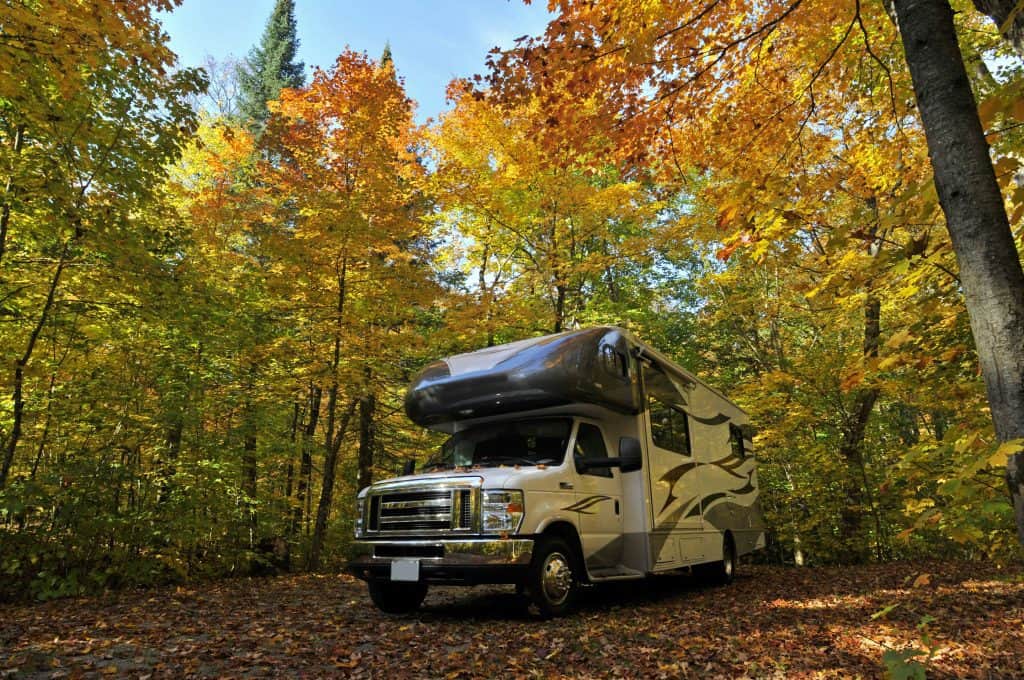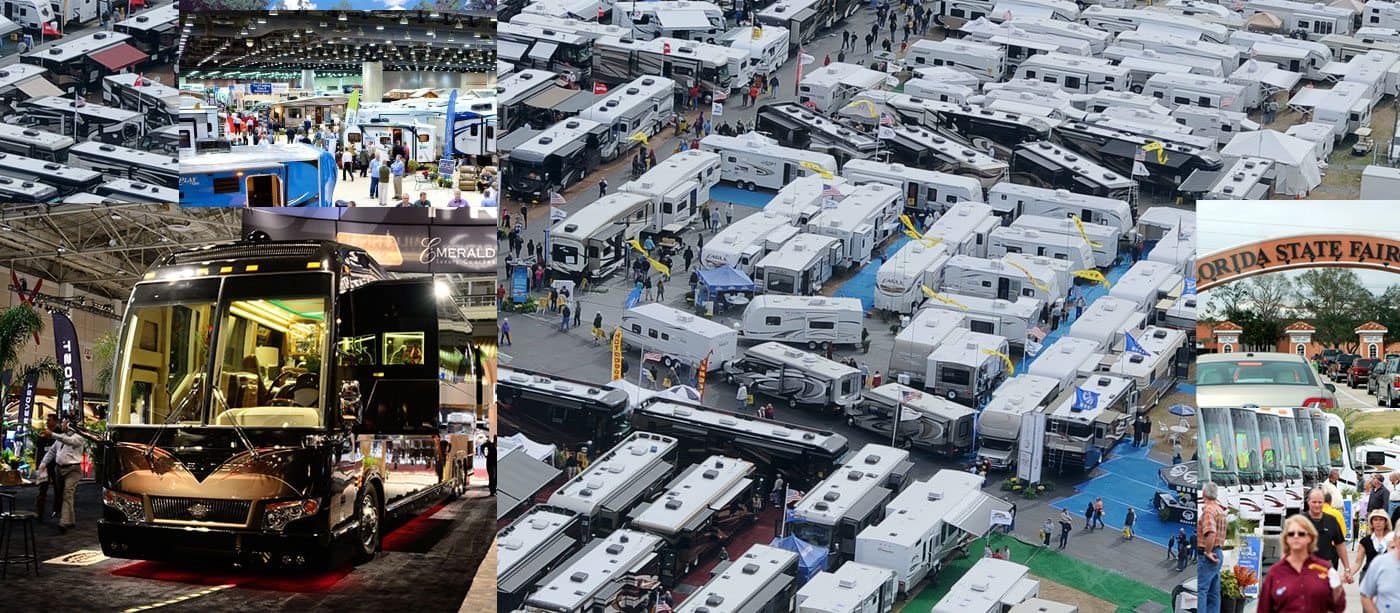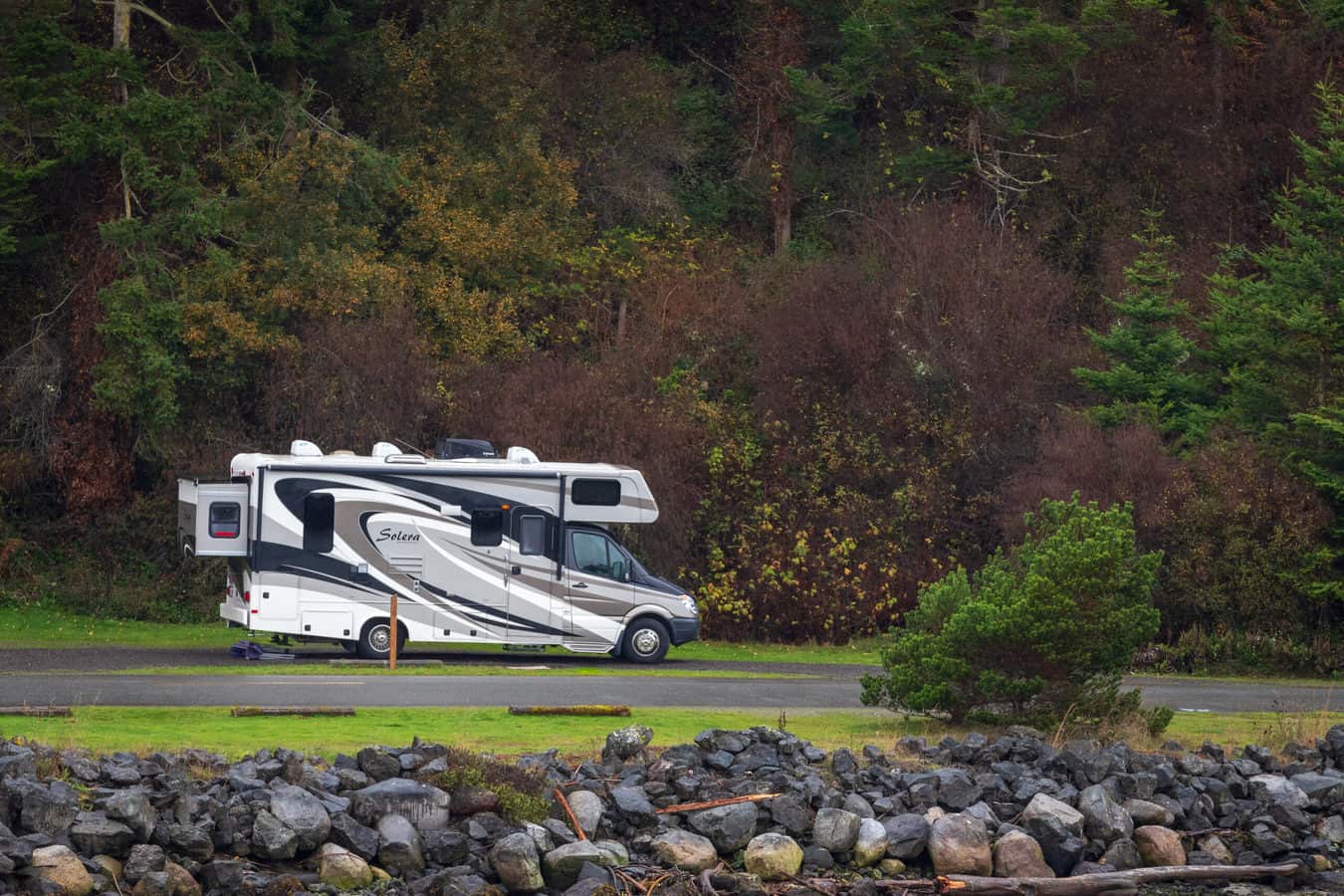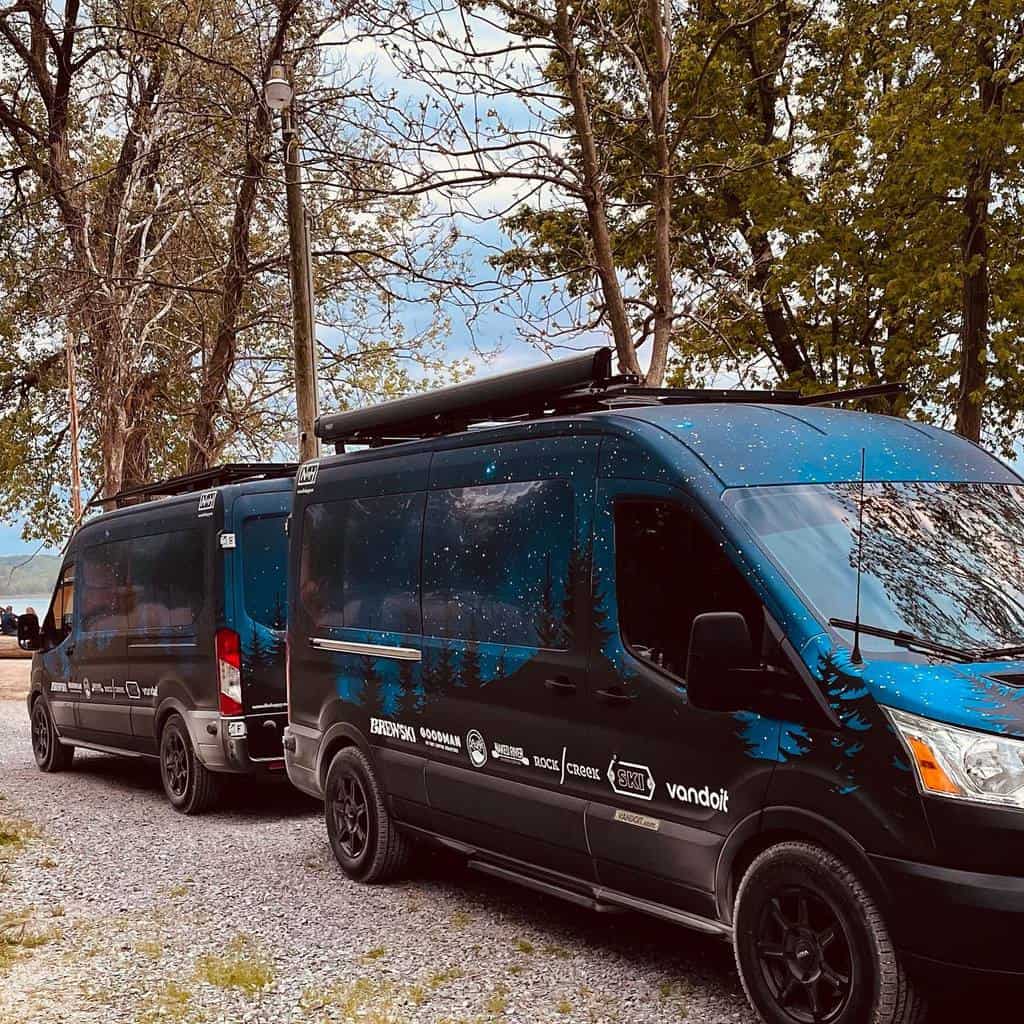
If you own a motor home or other recreational motor vehicle, then it actually might benefit you to register it as a second home. But wait, I hear you say, a motor home is not a house!
So the question remains: can a motor home be considered a second home? The IRS defines any home as a structure that has kitchen, sleeping, and bathroom facilities. So if your motor home has those three things, congratulations, you have a second home.
Why would you want to register your motor home as a second home? Well, I have answers to that question as well, along with definitions of the different kinds of motor homes and other options for additional homes.
Home Away from Home
A home, as I previously stated above, is any structure that has a bathroom, a kitchen, and a bedroom. That’s according to the IRS. And no matter how hard we wish we could ignore the IRS, unfortunately, we still have to listen to them. I, for one, do not plan on going to jail any time soon.
There are no size requirements for what makes a home. Literally, the only things you need are a toilet, cook top, and bed. Here, I’ll show you a direct quote from the IRS Publication 936 (2017), Home Mortgage Interest Deduction:
“A home includes a house, condominium, cooperative, mobile home, house trailer, boat, or similar property that has sleeping, cooking, and toilet facilities.”
Internal Revenue Service (IRS)
This means that you can register your motor home, camper, travel trailer, boat, tiny home, RV, or even van (as long as it also fills the requirements) as a second home. Your “second home” could even have all three (bathroom, bedroom, and kitchen) in the same room. Mobile tiny houses on trailers are a great example of that. With minimal square footage, they fill every prerequisite (and that’s just about all they fill too).
You can only have one main home at a time. This home is the home you choose to spend the majority of your time in. Simple math prevents you from spending the majority of your time in one house and also spending the majority of your time in another house.
A second home is any home that you declare as your second home. If you found a small, abandoned house in the middle of an overgrown field and bought it- as long as it had a bathroom, a kitchen, and a bedroom- you would be able to declare it as your second home. I don’t know why you would want to because it wouldn’t do you much good, but you could.
In order for a home to be declared as a second home, you have to check a few more check boxes. If you are not going to rent out the home or resale it during the year, then you don’t actually ever have to step foot in it for the home to legally be able to qualify as your second home.
However, if you plan on renting out the home for part of the year- as a vacation rental, for example- then you have to still live under that same roof for a required amount of time during the year for it to continue to qualify as your second home.
You either have to live in a rented-out second home for more than 14 days or more than 10% of the days that the home was rented out for. You have to choose the longer of the two options.
If you don’t live in that home for the time allotted, and instead rent it out for the whole year, then the home is considered a rental property and falls under a completely new set of rules and regulations.
You can own more than two homes. You can own as many homes as you want (provided you’re rich enough, of course). But you can only officially qualify one home as a second home. The others just live in a strange abyss until you decide to change their status.
You can change the qualification of your second home if your situation changes. For example, if you sell your main home and move into your second home, then obviously the second home is no longer your second home. Often times, people will move from their main home to their second home, essentially switching the titles of both homes without selling either.
If your current second home sells or becomes your main home, then you can choose any other home that you own to be your second home. This could be a house or motor home. The choice is yours.
Differences Between Second Homes and Investment Properties
Now, when you buy any new property, whether it be a house, a plot of land, a boat, or a vehicle, you have to make sure that you know exactly what you are buying. Are you buying a second home, or are you buying a investment property?
An investment property is any property that you purchase for the purpose of generating income. It cannot be your main home.
Most of the time, investment properties come in the form of projects that home owners like to “flip” and sell at a higher price than they bought.
Investment properties can also be rental properties or commercial properties. Even if investment properties have a bathroom, a bedroom, and a kitchen, they cannot be registered as your second home.
A second home has to be available for the owners use for the time period specified above, and is not intended to generate income.
Why Should I Care if My Motorhome is a Second Home?
Well, I’m glad you asked. The short answer is: if you have a second home, you can deduct mortgage interest on that property.
If you’re like me, that sentence didn’t bear any weight at all because it made absolutely no sense. Allow me to enlighten you.
When it comes time to file taxes, you, like me, probably spend a lot of time calculating just how much you can deduct. Again with the IRS. We really don’t like do what they tell us to, do we? In 2018, the rules for what you could deduct changed slightly.
Before I get into the logistics of the deductible, let me explain the different kinds of debt you can get yourself into:
- Acquisition Indebtedness– this is a loan that you take out for buying, building, or substantially improving a qualified residence. The residence is put up for collateral.
- Home Equity Indebtedness– this loan also puts the residence up for collateral, but the loanee can use the money for anything and is not restricted to buying, building, or improving the residence.
When you buy a house, a plot of land, or motor home (or really any vehicle), you will most likely take out a mortgage. You agree to pay back the money in monthly payments plus an interest rate that the bank chooses (based on how risky of an investment you are for them). If the owner cannot pay back the loan, the bank will seize the title to the property.
Up until 2017, the interest you paid on the mortgage payment was deductible on your taxes, meaning you had to pay less money to the government (always a great thing). You could claim that deductible for up to a million dollars of mortgage interest a year.
You could claim deductibles on any interest you paid on a mortgage with your property as collateral, regardless of the kind of mortgage it was (acquisition or home equity)
For the interest to be deductible, however, it had to be a mortgage loan with the property as collateral. If it was a personal loan, or you paid in cash, you were not eligible for the mortgage interest deductible.
In 2018, things change considerably. Now, you can only deduct up to $750,000 in acquisition debt specifically. Here is the exact quote from the Tax Cuts and Jobs Act of 2017 (TCJA):
“Allows interest on $750K of acquisition debt on primary and secondary home. Grandfathers interest on up to $1M of acquisition debt for loans prior to 12/15/2017. Repeals the deduction for home equity debt.”
Tax Cuts and jobs act of 2017 (tcja)
Of course, if you bought your second home before the rules for 2018 to 2025 (that’s right, it’ll be a while), then your debt, mortgage, and loans all get “grandfathered” in.
If you had a primary residence acquisition debt before 2018, then you can still claim up to a million dollars in interest deductibles for that mortgage, even if it was a home equity loan.
So, in other words, you can register your motor home as a second home, and if you have to buy, build, or significantly improve the motor home, you could take out an acquisition loan, and you could have some tax deductions in your future.
Location, Location, Location
Motor homes aren’t the only things you can register as second homes. If you’re interested in RV’s and the like, there are a few other kinds of properties you might be interested in turning into your second home.
House Boats
Boats are pretty popular as a hobby. Some people take it even further and start using their boat as a second home. House boats have become more and more common, and more and more people are starting to stay on board full time.
A house boat can cost up to a million dollars if it is really big, really nice, and really new. However, the average price of a house boat is going to be closer to around $55 thousand dollars.
There are two kinds of house boats. There are moored house boats and motorized house boats. Moored house boats stay in one place (moored at the dock) and motorized house boasts are able to travel around.
Moored house boats are slightly cheaper to live in because they don’t have to worry about gas for driving around or repair from movement at high speeds. However, moored house boats are usually a little bigger and more heavy duty, so they cost a little more to buy initially. They are also literally anchored down, so there is a little less freedom than motorized boats.
Living in a house boat only costs around $6 thousand dollars a year. The upkeep in a house boat is much lower than that of a house. It is also small, and if you are living in a moored house boat, then you don’t even have to worry about gas.
Trailer Home
Although trailer homes are not especially grand, they can be a cheap second home in a favored location.
Trailer homes are also relocatable, so they are attractive to people who like houses as second homes but still enjoy an adventure. A trailer home has no foundation. Also called manufactured homes, these buildings are built in a factory off site and then transported to the location.
Below is a table that show the differences in prices and amenities for the different kinds of trailer homes.
| Type | Size | Includes | Cost |
|---|---|---|---|
| Single Wide | 10-16 ft. in width by 42-90 ft. in length 600-1300 square ft. of living space | 2 Bedrooms 1 bathroom 1 living room kitchen | New: $40,000 Used: $10,000 – $25,000 |
| Double Wide | 0-42 ft. in width by 42-90 ft. in length 2000 square ft. of space | 3 Bedrooms 2-3 Bathrooms (one en suite and 1 or 2 additional) Kitchen Dining room Living room Washing room | New: $75,000 Used: $20,000 – $50,000 |
| Triple or Multi Wide | 50 ft. in length (width varies) 500 square ft. | 3-5 Bedrooms 3-4 Bathrooms Living room Kitchen Dining room Washing room Foyer | New: $100,000 – $250,000 Used: $50,000 and up |
Table information provided courtesy of mobilehomesell.com.
Motorhomes
There are three different classes of motor homes that you can choose from when you decide to purchase one. Each one is fully motorized, meaning that you don’t tow them behind another vehicle and instead drive them yourself.
Class A motor homes are the biggest of the classes, usually running up to 45 feet long. Because they are so big, they can fit a lot of storage and amenities. So you can bet your bottom dollar that you’re going to have a bedroom, a bathroom, and a kitchen, along with a lot more.
Because they are so big, they are kind of hard to maneuver around. If you were going to live in one, I would recommend that you also tow a small car behind the motor home for errands in town.
Class B motor homes are more like vans. Their size varies dramatically and some Class B motor homes are so small, they can barely fit a bathroom, kitchen, and bedroom inside. You can easily drive the Class B motor homes around town, so you don’t have to tow any additional vehicle. There is less storage space, so it would really only work out as a second house for one or two people.
Class C motor homes are basically exactly like a Class B motor home except slightly bigger. A Class C motor home is very easy to pick out of a line up because they have an overhanging sleeping area about the cab of the truck.
They range from 20-30 feet, meaning they have more space and are big enough for a smaller family. They are big enough that it would be difficult to maneuver through small streets, but you wouldn’t have to two any additional vehicle behind the Class C motor home.
Related Questions
Can I own and register two primary residencies? The IRS won’t let you have two primary residencies. You are only allowed to have one primary residency and once second home. You can, however, get some tax deductions from both homes.
Are property taxes higher on a second home? Because a second home is still a personal residence, you can file for tax deductions in the same way as you would under your primary home. Property taxes largely depend on the property you own, but there is no additional property tax just for owning and registering a second home.




What address do you use for your 2nd home (RV)?